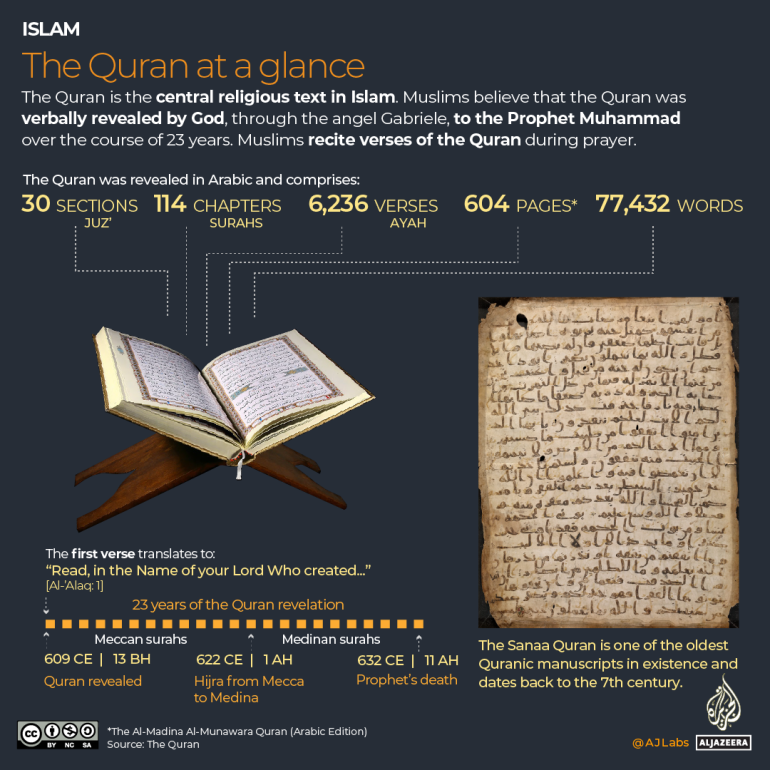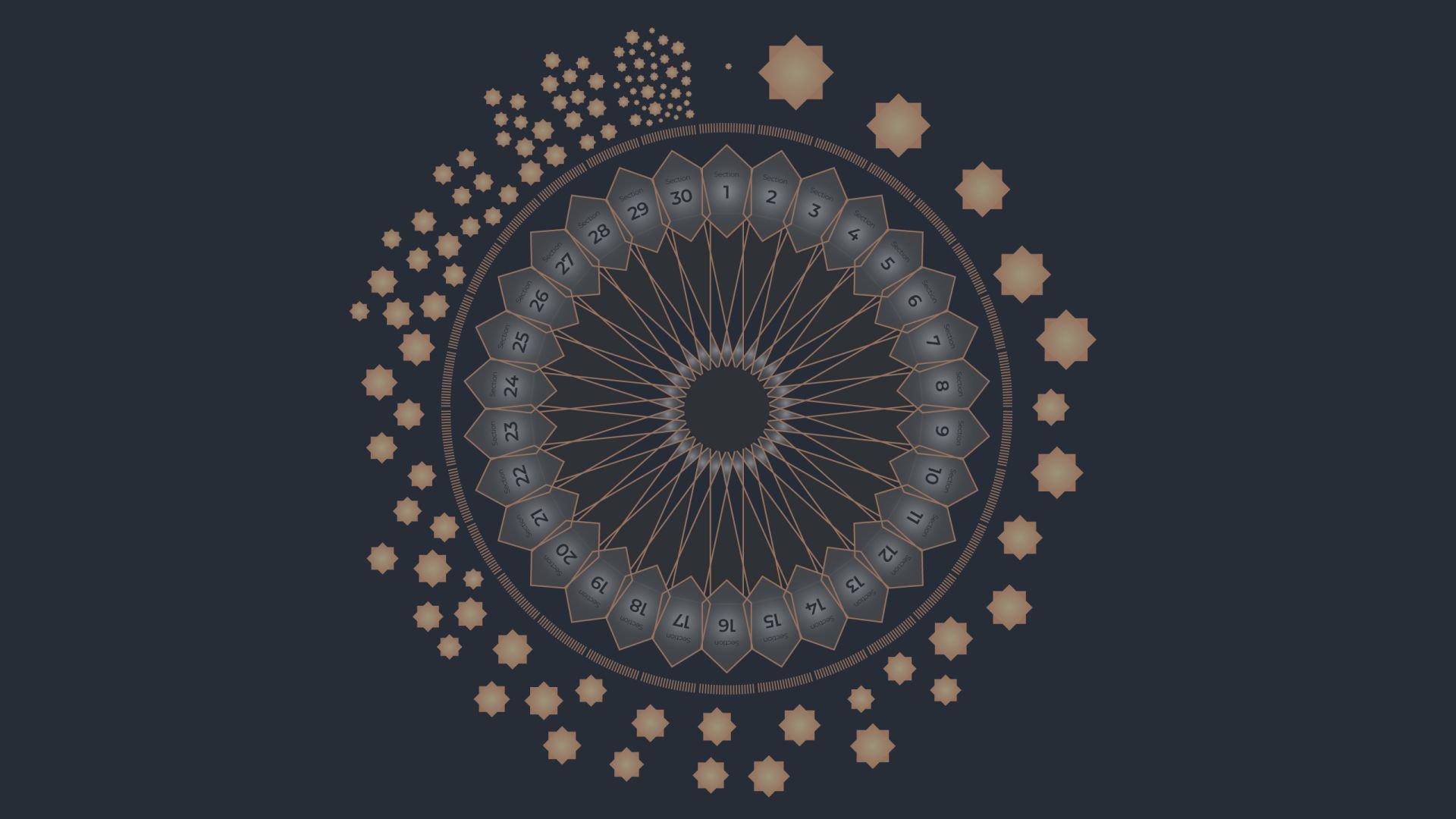Visualising the Quran
The Quran is the central religious text in Islam and is believed by Muslims to be the word of God as guidance for humanity.
The Quran is the central religious text in Islam. Muslims believe the Quran was verbally revealed by God, through the angel Gabriel, to the Prophet Muhammad over the course of 23 years.
The Quran was revealed in Arabic and it comprises: 30 sections, 114 chapters, 6,236 verses and 77,432 words.
The first verse of the Quran translates to: “Read, in the Name of your Lord Who created ...” [Al-’Alaq: 1]
Muslims are encouraged to continually read and memorise the Quran which has been preserved – to the letter – in its original form since it was revealed more than 1,400 years ago.
Among the oldest Quranic manuscripts in existence are the Sanaa Quran and Birmingham University Quran, both of which date back to the 7th century.

